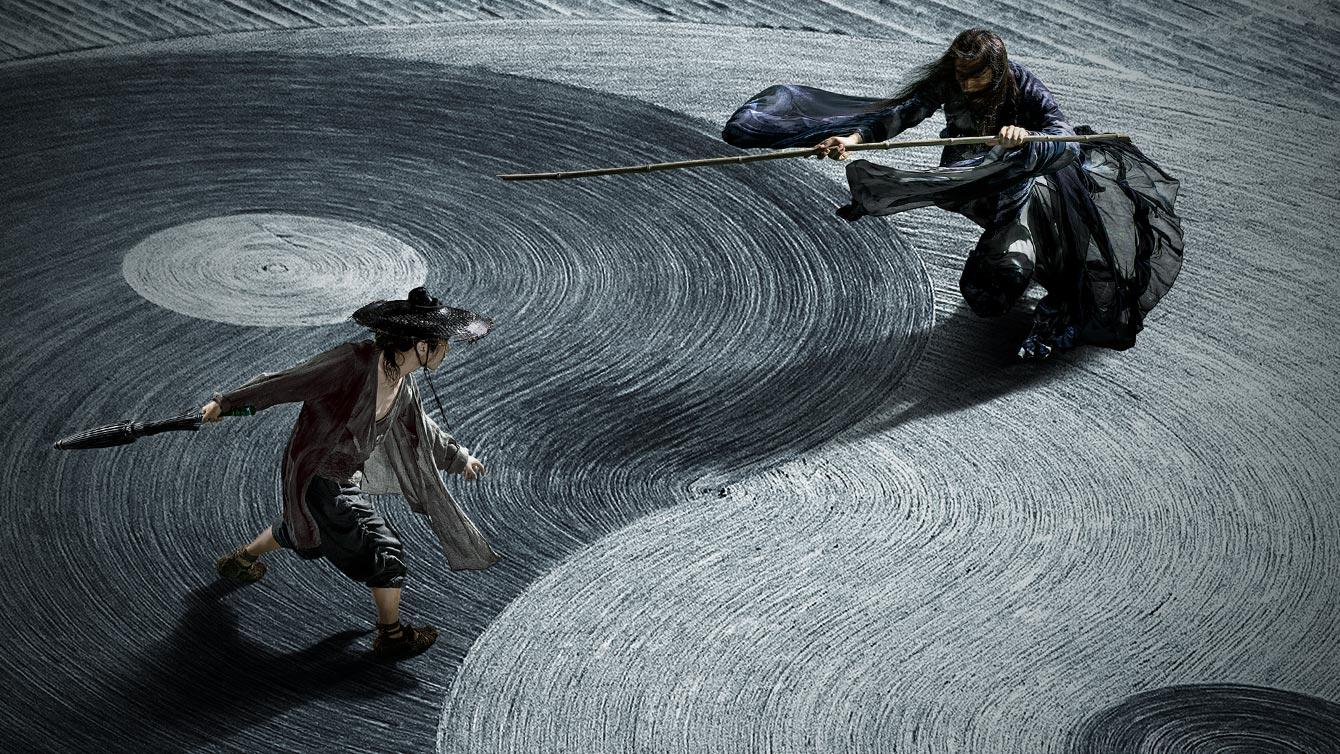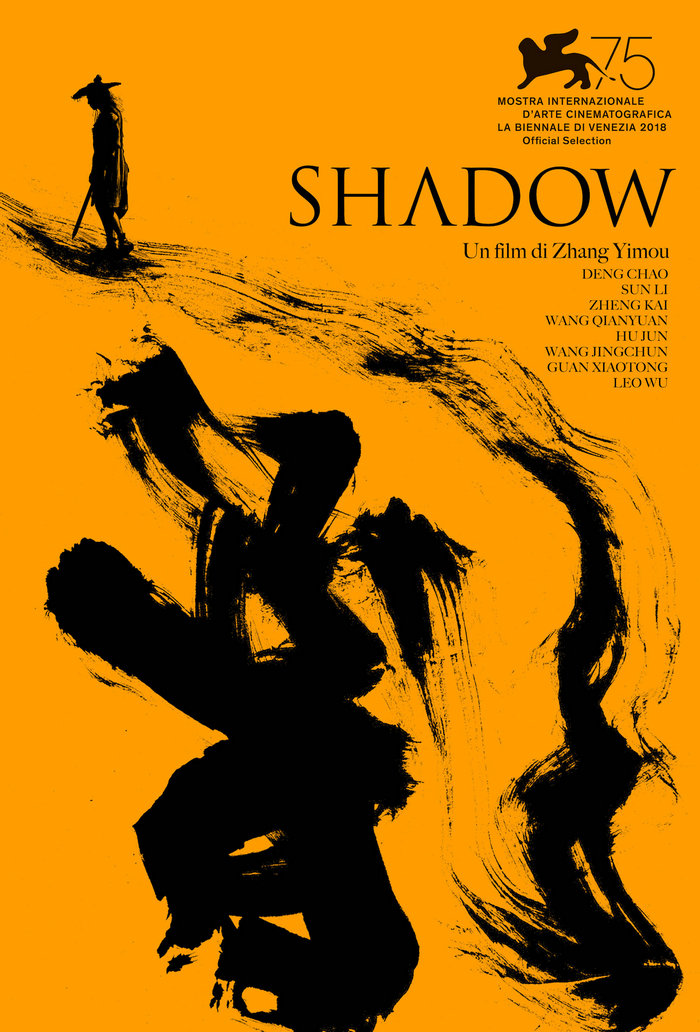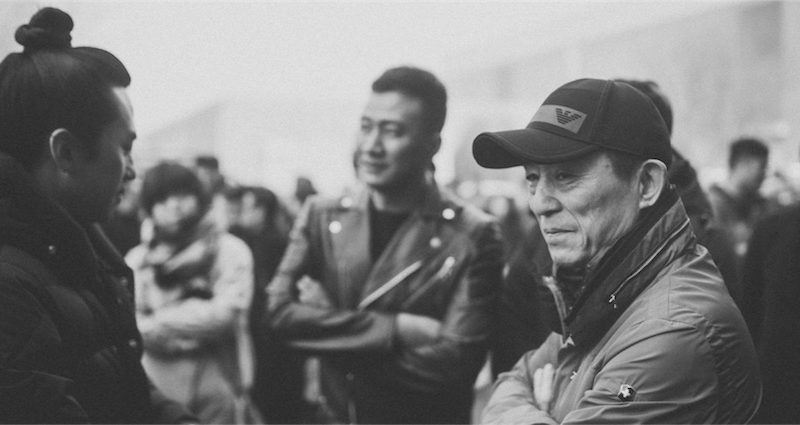On Zhang Yimou’s Shadow: A Return to Form
Zhang Yimou Shadow comes with black ink drips from a brush drawing a piece of calligraphy; water bounces up and down the ground as weapons are dragged on the floor and lifted up in duels amidst heavy downpour. Zithers emit ferocious, reverberating notes. Muted, monochrome colors of the set and the costume design that only serve to accentuate the crimson blood begotten by its bloodcurdling violence. Shadow is a technical landmark which also knows to insert meaning to its unique visual cues. This is Zhang Yimou’s return-to-form.
Two feuding kingdoms in Zhang Yimou’s Shadow, Yan and Pei, have had a long peace treaty, one that the King of Pei (Ryan Zheng), staunchly intends to defend. This treaty has cracks though, as given the way things stand, the city of Jing, one that used to be under Pei’s rule, is now under Yan’s thumb. Plenty of Pei people were born and raised in Jing, so given the cultural affection, they still try to get it back. To do this, Pei’s commander and greatest hero, Yu (Deng Chao), has gone ahead and set up a duel with the Yan Commander, one with more stakes involved than just the reclaiming of Jing. This move naturally earns the King’s wrath though, resulting in Yu’s demotion to a civilian.

We soon discover that the Commander Yu that set up the duel is no more than an Impostor called Jing, named after the city itself. He doubles for the real commander (also played by Deng Chao), who is now frail and sickly, as he holes up in a clandestine part of the palace. With the help of his wife, the philosophically and musically inclined Madam (Sun Li), he trains Jing for a duel of a lifetime.
Color grading serves a thematic meaning, given Shadow largely deals with the duality of existence of Yin and Yang
/cdn.vox-cdn.com/uploads/chorus_image/image/63746032/B2tubPu9.0.jpeg)
As stated in the first paragraph, Shadow is dominated with monochrome colors. It doesn’t render Shadow black and white, but its color grading clearly is deliberately more muted than your usual cinematic fare. It serves a thematic meaning, given Shadow largely deals with the duality of existence of Yin and Yang. The light and the shadow narratively depict the relationship between Jing and his Commander. This concept of existence will eventually be explored in a different way, though, which is largely shown by its ending.

The presence of zithers is also significant in this story. The way Zhang utilizes it shows how much he has grown as a filmmaker. There is one particular sequence, right before the third act, where the real Commander Yu and his wife engage in a zither play session. The session doesn’t feel collaborative, however, in fact it feels more adversarial. It is just as exciting as any fight scene in Zhang’s movies, while also hinting at what is about to come in Shadow’s absolutely bloody third act. Welcome back, Zhang Yimou. After wandering in the wilderness of The Great Wall with Matt Damon, he is back with a vengeance. Everything about this movie on point. The action scenes, the romance, the symbolisms, and the plot. Shadow is among the maestro’s best.
Zhang Yimou Shadow premiered at the 75th Venice International Film Festival and won Best Director at the 55th Golden Horse Awards along with some other categories (Visual Effects, Art Direction, and Makeup & Costume Design). Zhang Yimou himself is one of the best Chinese Fifth Generation filmmakers. His directorial debut, Red Sorghum, was the first Chinese film that won Golden Bear at Berlinale. Streaming available on Amazon Prime & Netflix US.
Faiz Aziz, Jakarta Cinema Club
Also read: Reflection on Liu Jiayin’s Oxhide II




